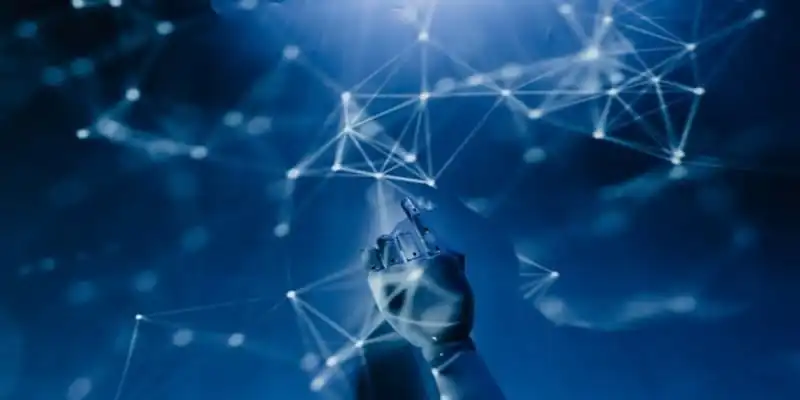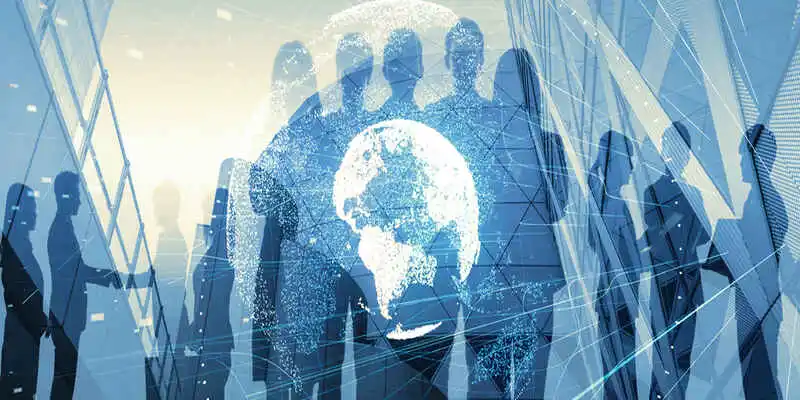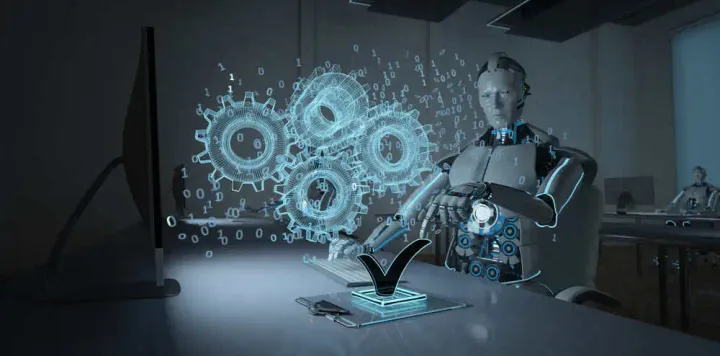Is Artificial Intelligence a threat to humans?
Will AI be a threat to humanity? Will AI-based robots will take over the world? AI is a phenomenon not occurring naturally but it is built by humans. Machines are able to detect differential patterns swiftly and accurately, so where does humans stand?

Is Artificial Intelligence (AI) a threat or opportunity for mankind? The answer to this question is not that simple. We cannot perceive AI as a threat without having a deep understanding of its architecture and functionality. AI is a phenomenon not occurring naturally but it is built by humans. Machines may be able to detect differential patterns swiftly and accurately, but humans will always be the creator of unlimited patterns driven by internal or external observations. This can potentially suggest that humans will always be one step ahead of Artificial Intelligence.
Read also: is AI a threat to jobs?
Read also: is AI a myth?
What is Artificial Intelligence actually? The answer has been changing throughout the course of advancements in technology. Artificial Intelligence is meant to transfer cognitive human intelligence into machines to perform a certain function that requires sense (Input), learn (trained by dataset), understand, and perform (output). The simplest example of AI mediated manifestation is computer chess bot. It has successfully outperformed human chess intellect. Once, Optical Character Resolution (OCR) was considered an application of artificial intelligence but it is progressively excluded from the term as it becomes a routine technology. So the main goal of Artificial Intelligence seems to be doing something that has not been done technologically.
Now let us come to the argument about AI’s effectiveness. In constructive horizons, AI is already helping in enormous aspects of business, lifestyle, health, and performance. From a simple chatbot of an e-commerce store to a well-established business intelligent system that records, monitors and manipulates every bit of information within the business as well as competitor's business intelligence approaches, AI is covering almost everything in the market. Google’s AI is another bright example that records your desired search terms, location, chat and browsing history and suggesting potentially desired products to your browser. According to the market research firm Tractica, 2025 is expected to show us rise in the AI software market up to $126.0 billion ($10.1 billion in 2018).
Artificial Intelligence is playing a major role in supporting e-commerce by suggesting customers ’ needs, and sales patterns area-wise throughout the year. Moreover, targeted marketing, automated select-and- pick approach, stock keeping, post-sales stats and feedbacks all are handled by AI systems to assure fast, accurate and easy business solutions. By 2022, the E-commerce industry is projected to give a total revenue share of 6.54 trillion US dollars.
While considering the industry, we cannot ignore real-time production units based on robotics i.e. Automobile industry, computer manufacturing and every other kind of manufacturing. Robots are providing accurate, fast and error-free execution of build commands.
It will be of no surprise if AI replaces doctors and paramedical staff in the future. AI has astonished the researchers and doctors with its power to classify, diagnose and prescribe the disease based on the dataset provided using Artificial Neural Networks. For example, in a study, an AI system was trained with a dataset of 129 450 clinical images. On the other hand, 21 specialist dermatologists were given biopsy-proven images. When the results were compared, AI proved to be far more accurate and reliable than those dermatologists. There are several other examples where Machine Learning was used to predict potential cardiovascular disease risks. Moreover, modern surgeries are carried out by trained robots having no human error or stress response. Modern DNA sequencing technologies are responsible for generating a huge amount of data. This data is used to establish the link between mutations and disease, facilitating the early diagnose of disease. There are an enormous amount of other examples enough to prove the bright side of AI-based systems.
Now, what if artificially intelligent machines go rogue and instead of being a problem-solver, they become killing machines? Many movies about AI have filmed the sinister transformation of robots like Terminator, Robot an Ex-Machina. There was a rumor about 4 robots killed 29 scientists in Japan, in August 2017. This rumor has been proven falsified as no certain evidence was provided to ensure its occurrence. Although, this created so much drama on social media so that people start to believe AI is a curse. But that is not true. AI is all about what is fed into the system. While compiling the code, researchers make sure to put stop codes to avoid certain potential outcomes. You can think of AI as nuclear technology. If used safely, it can eliminate the energy crisis throughout the world. But in the wrong hands, it can wipe out the entire population in no time. If we consider the aspects AI is covering, our personal data, flight schedule, Cloud-based financial transaction, AI-controlled nuclear plants, GPS-mediated vehicles, all are making a difference. But, just imagine the AI system is hacked and controlled by villains of the society, what could possibly happen? You may never imagine.
So at the end of the discussion, we may conclude that the benefits of Artificial Intelligence outnumber its harms. Moreover, potential harms can be neutralized with control structures and strict policies. AI is the future, without any bit of doubt.
Cheers :)


